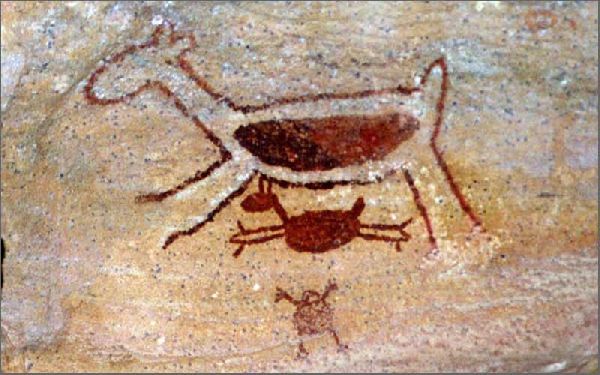
I - Regular Courses
Portuguese for Foreigners (PFL)
Audience: The regular courses are aimed at all foreigners interested in learning or improving their communication in Portuguese, from Brazil. Available online classes or face-to-face classes in São Paulo, SP. If you prefer, improve fast your Portuguese Skills with our Crash Course.
1 - Basic
Use of daily expressions, presentation and answers to questions about personal life details. Simple interaction with natives as long as they speak slowly, clearly and are willing to help. Understanding of phrases and expressions related to shopping, local geography, employment and other known aspects, such as the environment where you live and immediate needs.
2 - Intermediate
Understand the main points about everyday subjects such as work, school and leisure. Able to deal with daily situations in the country where the language is spoken (tourist travel). Interaction with native speakers in a sufficient degree of fluency and naturalness so that communication takes place effortlessly by the interlocutors. Simple texts on familiar and interesting areas. Description of experiences, events, dreams, desires and ambitions. Opine on plans and discussions, indicating advantages and disadvantages of the various options. Main ideas of complex texts dealing with both concrete and abstract themes, including those of a technical nature.
3 - Avanced
Understand a wide range of lengthy and demanding texts, as well as recognize implicit meanings and ideas. Know how to express yourself fluently and spontaneously without showing much effort to find a suitable word or expression. Effective use of language for social, academic and professional purposes. Production of clear, well structured and detailed texts on topics of some complexity, showing correct use of the mechanisms of organization, articulation and cohesion of the text. Use of authentic materials to consolidate understanding of what you hear and read. Reconstruct the information and arguments from various sources, whether spoken or written, and present them in a coherent and summarized manner.

Adapted to the objectives of the Common European Framework.

II - Celpe-Bras: Preparatory Course for the Brazilian Portuguese Language Proficiency Exam
Preparatory Course for the Portuguese Language Proficiency Exam Celpe-Bras, held twice a year in Brazil and abroad. Covered content: written test design, 4 activities based on a video, an audio and 2 pieces of news (listening comprehension and text interpretation), speaking exam methodology (oral part of the exam / face-to-face interaction), provocative elements, tips for doing well, and evaluation criteria. Assessment test available.

Further information is available at the video below with Camilla Wootton Villela, from Canal Brasileirices.
10th. October, 2017, Camilla and I had a LIVE with the participation of PFL teachers and candidates for Celpe-Bras, when we could answer several questions about the exam. If you have any questions, see the link below.


Preparatory course for Celpe-Bras, held in São Paulo, April and May, 2019. Group made up of foreigners from Bolivia, Haiti and Venezuela.

Preparatory course for Celpe-Bras, on-line, February and March, 2020. Tailored one-to-one classes.
III - Brazilian Art and Culture
Audience: Brazilian art and culture are aimed at all brazilians and foreigners interested in improve their knowledge of Brazil.

1 - Regions of Brazil
The course covers the main aspects of each brazilian region focusing on culture, arts, history and tourist destinations.

2 - Brazilian Fine Arts
The course presents an overview of brazilian fine arts, going through the main historical processes from "rock art" to the present day, going through the Artistic Missions, Baroque, Academic period, Modernism, Concretism, Neoconcretism, among other relevant points. For this, the classes are expository using images through slides (Power Point) and videos (documentaries). Optional visit museums and art galleries in São Paulo, Brazil.

3 - São Paulo History
Want to know a little about the history of Latin America's main financial, corporate and mercantile center? São Paulo is the largest city in Brazil, in the Americas, and throughout in the Southern Hemisphere and has lovely nightlife, traditional annual events, many curiosities and historic buildings. Optional walk through the city center.

4 - History of Paulista Avenue
We present part of the history of the most famous avenue in the city, from the opening and construction of the mansions in the early twentieth century - some remnants - to become a major financial, gastronomic and shopping center area. It is also an important cultural reference of São Paulo for housing MASP, Moreira Salles Institute, Itaú Cultural Center, Sesc, Sesi / Fiesp Cultural Center, Casa das Rosas and artwork by Tomie Ohtake and street art by Eduardo Kobra.
IV - Challenging Grammar Topics
and Business Portuguese
Audience: The courses are aimed at all brazilians and foreigners interested in improving their Portuguese language skills in specific situations.

1 - Business Portuguese
The course is aimed at those who wish to improve written communicative competence through business letter and e-mails, in addition to oral communication in Portuguese, with the specific purpose of operating in the business environment. To this end, we will address the different levels of formality, major language biases and grammar update in context.

2 - Challenging Grammar Topics
Aimed at all brazilians and foreigners who want to improve or expand their knowledge of the Portuguese language, through authentic materials. To this end, we work out the general and particular challenges.

3 - Non-violent Communication in Companies
Aimed at all employees of large or small companies. NVC was developed by the American psychologist Marshall Rosenberg in order to propose new social systems, oriented towards partnership and power sharing; it aims to consider the common values among all as well as an attitude based on empathy.